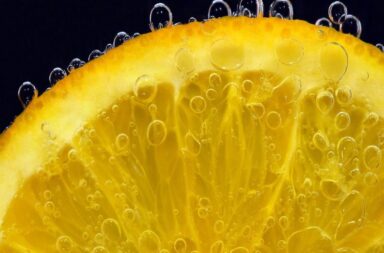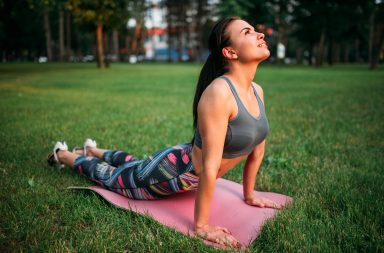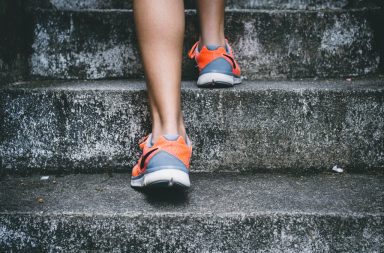Have you ever wondered how to holistically aid muscle recovery? If so, you’re in the right place! The recovery process is integral to making the most of your progress, whether you’re working to gain or tone muscle. This article will detail how you can maximize your results from exercise using holistic therapies.
There are many ways in which you can speed up the recovery process of muscles. There are many ways to ease the recovery process post-workout from diet changes, supplements to yoga, and other schools of Indian philosophy.
These techniques, if implemented, can make exercising easier and more enjoyable by reducing the pain, fatigue, and stiffness experienced in the days after a lengthy workout. This article about how to holistically aid muscle recovery will detail exactly how you can make the easy changes required to quicken muscle recovery.
What Herbs Help With Recovery?
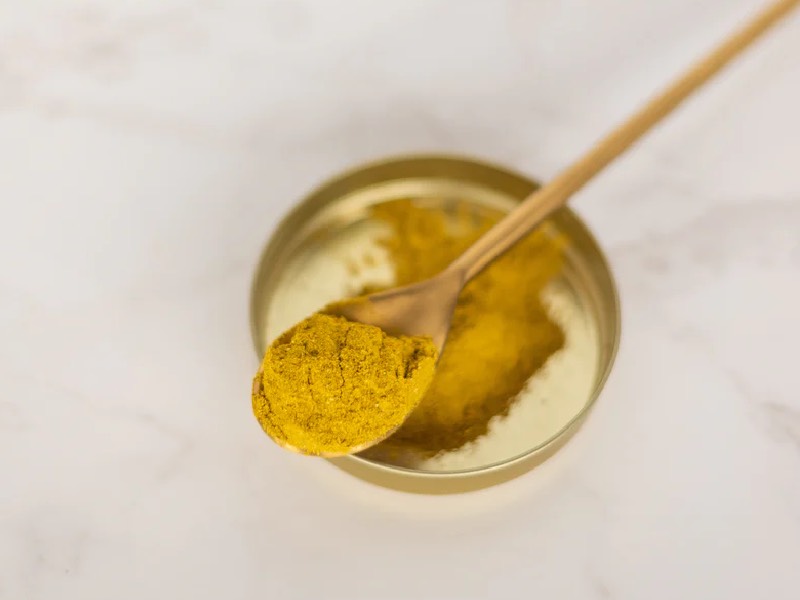
Courtesy of Tina Witherspoon
While the importance of a good diet is often mentioned regarding any medical recovery process, the significance of herbs cannot be overstated. Regarding muscle recovery, adequate hydration and diet are the most important factors. Adding herbs to your meals can help jam-pack your diet with nutrients. Drinking two liters of water per day is always recommended– however, while some diet and exercise regimens may recommend you drink more than 4 liters per day, this is putting a great strain on the kidneys. If you often feel the need to drink more than four liters daily, it may be wise to speak to your primary care practitioner. Excessive thirst and peeing are symptoms of diabetes insipidus, which can be easily detected through a blood test.
What you eat should also be a primary concern in the muscle recovery period. Herbs have been used for centuries to maximize muscle gain and recovery, with spices such as turmeric and fenugreek being renowned for their positive properties in this area. Faria et al (2020) tested the effects of turmeric on muscle recovery on thirty-six athletes after completing a half-marathon. This research found that athletes who took the turmeric supplement daily demonstrated lower myoglobin levels paired with higher interleukin-10 (IL-10) levels in a blood test.
These results significantly demonstrated that the supplement composed of Curcuma longa extract (the active ingredient in turmeric) was able to reduce inflammation by increasing intramuscular IL-10 levels, while also reducing muscular recovery time as indicated by lowered myoglobin levels at the end of the seven-day study period.
What Foods Help Repair Muscle Damage?

An easy way to help make sure you consume a good amount of turmeric, fenugreek, and other herbs to boost muscle recovery is to make a spice mix. We recommend Jaffna Curry Mix, a spice mix composed of chili powder, fenugreek, cumin, turmeric, and other spices positively implicated in muscle recovery. Or, if you’d prefer a superfood-packed side, brown rice pilaf with fenugreek leaves is an easy turmeric recipe to accompany many proteins. For more superfood-rich recipes, check out this acai bowl recipe or this healthy salmon fillet recipe.
Should You Stretch a Strained Muscle?
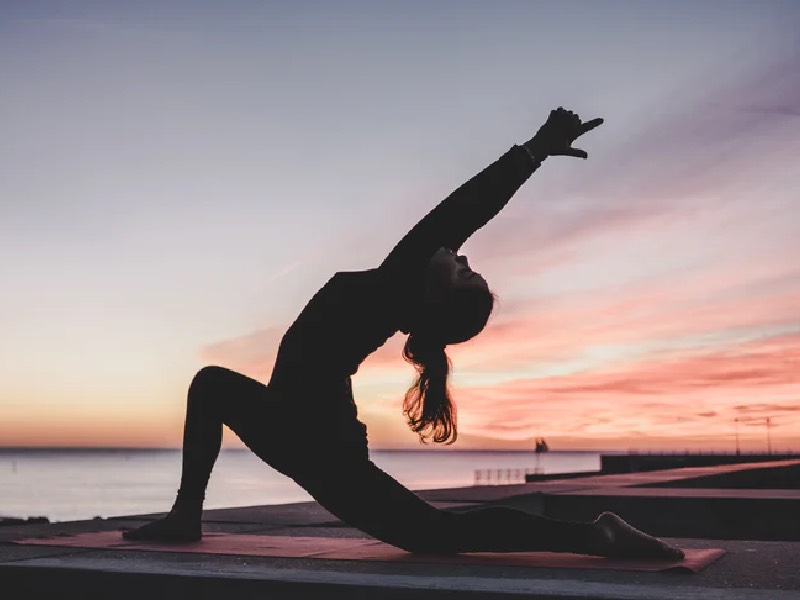
Courtesy of Kike Vega
Mobility is keenly linked with flexibility, which is often inhibited in periods of muscle gain. As we put on muscle using intensive, repeated exercises, strength and muscle growth, and flexibility often wanes. This is a common issue in strength training because if you lack flexibility, you’re far more at risk of sprains or soft tissue tearing.
Thus, if you often find yourself reeling after most gym sessions, you may be causing more damage to your joints through exercising joints lacking the required flexibility to properly perform these exercises. Flexibility will not only help you reduce the risk of injury but performing low-impact exercises like yoga will help your muscles recover faster too, as shown in research by Cowen et al. (2004). The best poses to use to aid the recovery of muscles include the butterfly stretch, forward fold, and the child’s pose.
Should you foam roll on rest days?
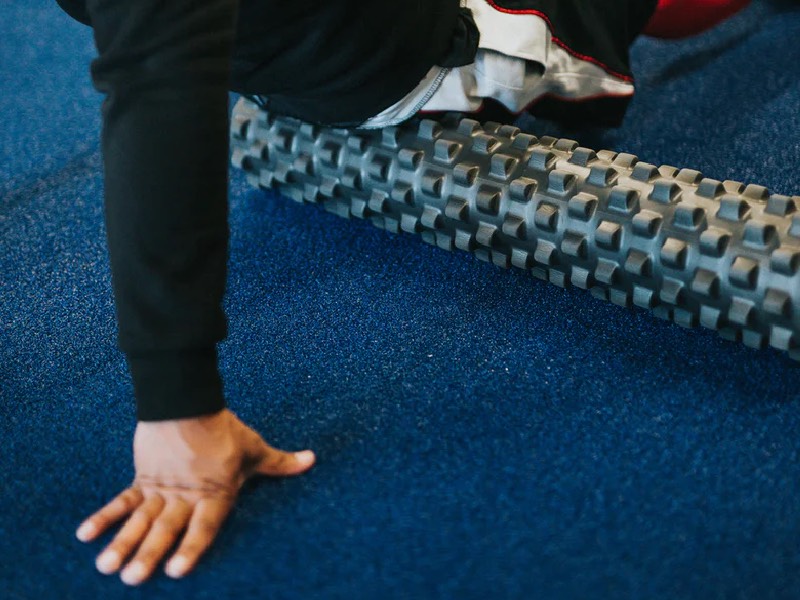
Courtesy of Andrew Valdivia.
After exercise, stiffness is a common complaint. Sadly, it is often impossible to reach areas of soreness ourselves for massage. However, muscular inflammation and stiffness can be easily remedied through the use of a foam roller. These nifty objects can provide a dynamic massage for sore muscles after a long exercise session. Sport and exercise experts recommend the use of a foam roller directly after exercise for the best release of lactic acid build-up, rolling out your muscles at any point post-exercise is beneficial.
Which drinks aid muscle recovery?

Courtesy of Clarissa Carbungco.
The child in all of us can rejoice since at last we have a good excuse to drink chocolate milk daily! Multiple studies have proven the effectiveness of chocolate milk as a post-exercise recovery aid, including such research by Karp et al. (2006) proving that chocolate milk improved muscle recovery after exercise in comparison to the average carb-rich sports drink. Furthermore, adding half a teaspoon of cinnamon to your chocolate milk can boost the health benefits of the drink.
Does eating more protein help with muscle recovery?

Courtesy of Ronise Daluz.
What you eat before you sleep significantly impacts how well your body can perform restorative processes as you sleep. Hence, to reduce muscle recovery time, the meal you eat before you sleep must be full of protein.
An easy way to increase your meal’s protein volume is by replacing dinner-time staples with high-protein options. Replacing white bread with Ezekiel bread or replacing your regular cheese with cottage cheese will allow you to optimize your protein uptake.
Furthermore, if you ever fancy fish and chips, you can replace cod with yellowfin tuna. Yellowfin tuna are high in protein, with a whopping 25 grams of protein per three ounces. This alternative is high in protein and carbohydrates, restocking your body with resources you lost during exercise. These easy diet changes will streamline your recovery post-workout.
What is a natural remedy for muscle pain?
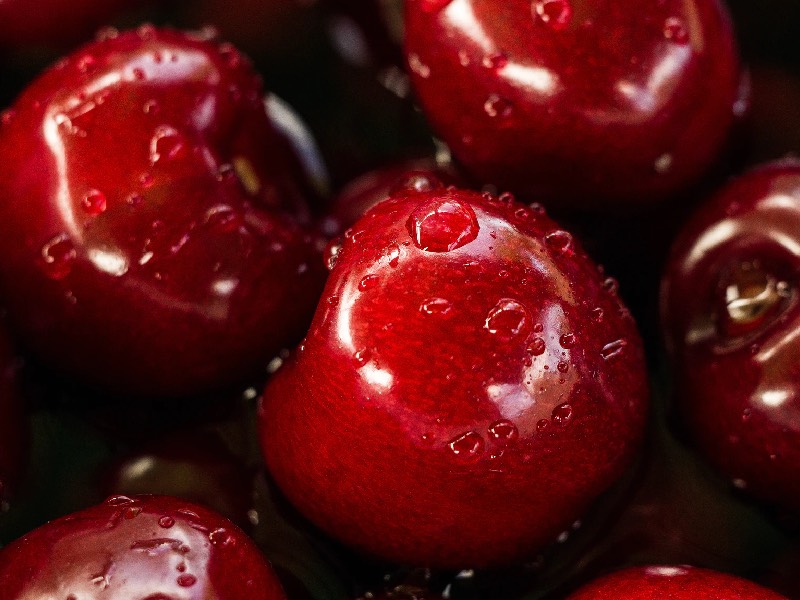
Courtesy of Roksolana Zasaidko.
Tart cherries are a superfood similar to the traditional cherry, though they tend to be sourer. Tart cherries are typically served as a dried snack. However, they can be juiced to produce a superfood drink to boost muscle recovery. Furthermore, tart cherry juice has also been hailed as a protectant against age-related cognitive decline and gout. Hence, it provides many benefits to the imbiber other than the benefit to muscle recovery.
Is hot water or cold water better for muscle recovery?

Courtesy of Victoria Alexandrova
A cold shower can be a handy weapon against post-exercise muscle inflammation. However, there are alternatives available for those who hate cold showers. However, if you can’t bear to complete your hygiene routine under cold water, you can alternate in a ‘James Bond shower’. This shower involves turning your shower water supply from cold to hot mid-shower to enjoy the benefits of both temperatures. While it may be unpleasant, it’s a great way how to holistically aid muscle recovery!
Do alcohol or smoking affect muscle recovery?

Courtesy of Shaun Meintjes
While it is tempting to go for a pint after a long day at the gym, doing so can impact your recovery. Chronic alcohol consumption was shown to cause muscle damage by a plethora of different abnormalities in the research of Rubin et al. (1976). These changes are due to a reduced sensitivity of ATPase, which in turn limits the muscle’s ability to contract.
Research by Vella et al. in 2010 detailed the danger of even moderate drinking in the post-exercise period. This study found that the impact of alcohol on muscle tissue is present in athletes who drank moderately post-exercise. The alcohol consumption set back muscle recovery even when consumed a day after exercise.
This research highlighted the impact of alcohol on hydration. It showed that alcohol caused dehydration, which can inhibit muscle recovery. Tobacco has a similar dehydrating effect. Orlander et al. (1979) found that tobacco inhibits the capacity of muscles to utilize oxygen. This ability is imperative in muscle recovery because oxygen is implicated in all skeletal muscle recovery pathways. Thus, when the muscles are deprived of oxygen, recovery ceases.
Frequently-Asked-Questions
Do you need rest days to build muscle?
The most common recommended recovery/rest time is 48-78 hours, depending on the intensity of exercise. The more intense the exercise regime, the longer the recommended rest time.
Are baths good for muscle recovery?
Bath soaks are an easy way how to holistically aid muscle recovery. A mix of sweet marjoram oil and Epsom salts mixed into your bath will enhance your relaxation and muscle restoration. Or, you can pour some apple cider vinegar into your bath, as described here.
How can you make your legs heal faster?
Using a foam roller, standing on your hands with your legs against the wall, and getting more sleep can all help speed up the process. If you have trouble sleeping, check out the best sleep-inducing foods to try.
